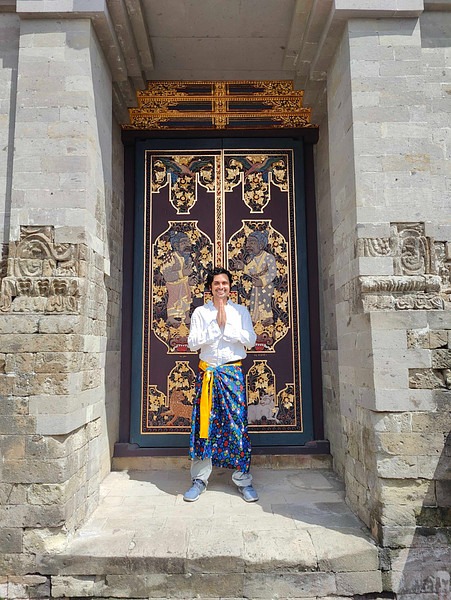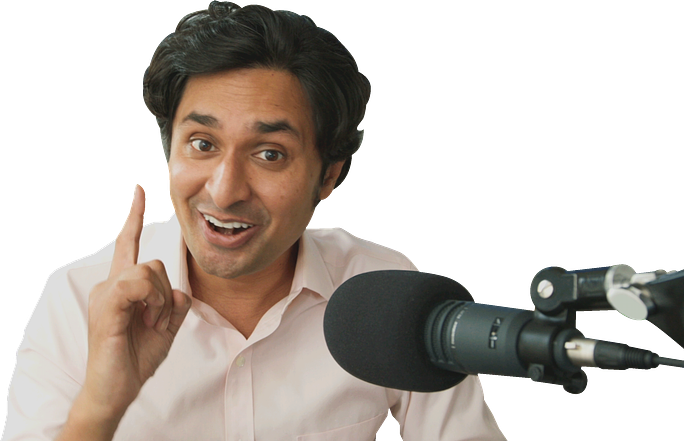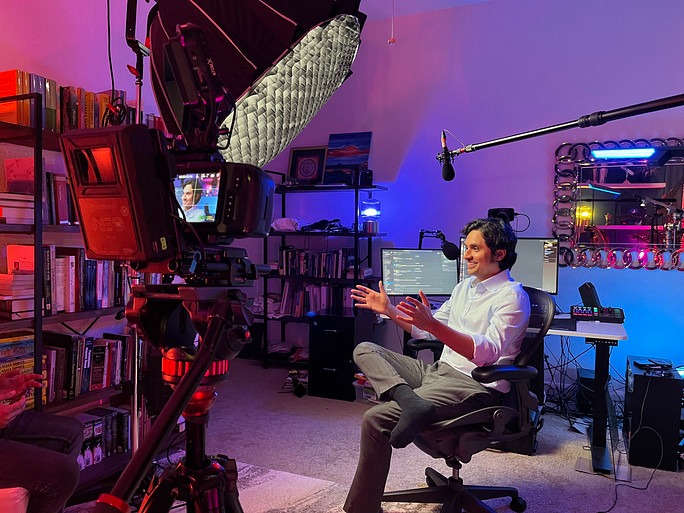Since tech and gaming addicts use millions, some sounds as Dr. Alok Kanjia are urgently needed. Or largely reliable. Millions of online known as the doctor’s name, he combines neuro science, spirituality and first experience to deal with the most misunderstandings of his time. In this interview, he opens about his descent in gaming addiction, how meditation saved his life, how to help gaming addiction and much more.
Innovations and tech today: You have openly talked about your past struggle to get out of gaming addiction and college. How did this experience make you meditate and spirituality and become a psychologist?
Dr. Alok M Kanujia: My journey began with video game addiction. I was accustomed to video games, and my parents were amazing, residential, careful parents. They are both doctors, in fact, so they understood the medicines and to a certain extent, were drunk, but they only became more than that.
Technology has become so unpleasant and incredibly addicted. Where do we learn how the parent’s method is? From our parents. Every parent has to deal with drug addicts, but they usually begin in high school or as a teenage. Now, parents deal with the goods at the age of one, two or three years. Parents have never been born, which has to deal with such a wide and addictive substance that has been entering every corner of our lives.
I basically failed outside college. After a year, I was on educational trial. My parents tried everything-they tried hard, they tried to love with love-but nothing was working.
It was almost my rock falling out of college. I was a “skilled baby” who was grading grade, stepping on raw intellect, and then found myself failing. My father told me, “Pack a bag – go to India.”

So, I only arrived in Bangalore in 2003 with no phone and no plans. I was nothing but shame and disappointment. For the first two weeks, I hated her – I cried every day, begging for a ticket to return home. But I caught it. Over time, I met a fellow student who started guiding me in meditation ways.
This life or death -like discipline awakened me with two things.
First, the strength of the saplus experience. Western science teaches us what “average” works, but I need to know myself.
Second, the lost curriculum on “you”. We learn algebra and chemistry, but we have almost nothing about our own minds, strengths or emotions. In India, I learned to map my inner landscape – how to manage your heart rate, calm your brain, and even bathe my lungs with ugly cleaning techniques.
When I returned to the United States, I finished undergrade, went to medical school, trained psychology, researched neuro science science, and brought these Eastern insight into my clinical work.
Now, I help people understand that they are tools – how to specialize in focus, beyond destructive habits, and turn “average” life into an extraordinary life. The journey began with my decision to sit, to sit, and learn from my mind.
These seven years of education in order to become a monk really helped me overcome my addiction. But I finished meeting with my wife, so the whole monk did not work. I decided to go to Med School, trained in Harvard, and stayed there for a few years.
Around 2015, I asked my guardians what they think about video game addiction. They didn’t believe it much about it. They never played video games.
At the same time when I began to focus on tech addiction and connect my living experience with Eastern concepts like mind -making. My goal was to make concerts, especially their little version-Numer Omar, young adults, and 25-year-old children living in the basement of their parents, who had no job and played video games all day.
When we grew up in this community, their parents began to arrive. Sometimes, children walk with parents during our coaching calls and say, “Wait for a second, is she of the doctor?” Parents ask, “How do you know who he is?”
At that time, there was no formal diagnosis. The World Health Organization has a kind of potential diagnosis. I just started talking to the gamers, began working with young people and working in the early 20s, struggling to get life on track.
Finally, I began to stream on the Tweich, how to educate technology, how to work for your brain and how to control my brain. We became the fastest growing river on the Tweche for about three months. Now, we are seeing five to six million concerts a month. The parents began to reach us, saying, “Hey, my son or daughter is having a great problem. I don’t know what I do.” So, we started helping parents as well.
I today and t: You have called excessive tech use for the brain “invasive.” Can you explain what affects the mind and emotions?

Kanjia: The reason for this is that I call it “invasive” because it feels. Video games, apps, algorithms – they are ready everywhere. And the problem is no longer just addict – its focus, emotional rule, even the basic stimulation.
So what happens? We get too much. The brain is constantly chasing dopamine. And when you survive in this environment for a long time, the brain becomes unconscious. Things used to bring happiness – reading, being out, friendship – will not feel so beneficial.
It makes emotional flattering. Lack of encouragement. Feeling meaningless. And the gamers, especially the young people, which appear as sadness, anxiety, anger, or complete withdrawal. The reason for this is not that they are broken-the reason is that they are adapting to a system that was never made in keeping with their welfare.
I today and t: In your view, how can one tell when gaming has become a mental health problem?
Kanjia: It is not about how many hours is playing. It’s about what gaming is doing with the rest of his life. Is it getting out of school, work, relationships and hygiene? Are they using it to avoid problems? Are they more irritated when they are not playing?
If you are a parent or friend, don’t start with control. Start with curiosity. Try to ask: “What do you like about this game?” Or “How does it make you feel when you are not playing?” Often, what comes out is stress, isolation, or feeling as if they are failing in life.
I today and t: How does a healthy gamer offer help?
Kanjia: We offer peer coaching. The real people who are going through a similar struggle. This is not therapy, but its structure, accountability and sympathy. We also develop materials that teach people behind their behavior. Finally, our book and guide give parents tools tools to rebuild healthy relationships with technology.

We are not anti -tech. We are intended.
I today and t: What makes your eight -week plan different from a restricted point of view?
Kanjia: Most approaches focus on sanctions. This creates a struggle for anger and strength. What we do is focused on patience. The idea is to help children promote their ability to manage their gaming from the inside.
I today and t: How do a “healthy gamers” actually look for you?
Kanjia: Someone who enjoys sports but is not using them to avoid life. When they use sports to prefer school or relationships, and to connect, they can stop, and not isolated.
The biggest thing may be that they identify beyond gaming. They know who they are when the screen is off. Games are just a part of their life, not the whole thing.












